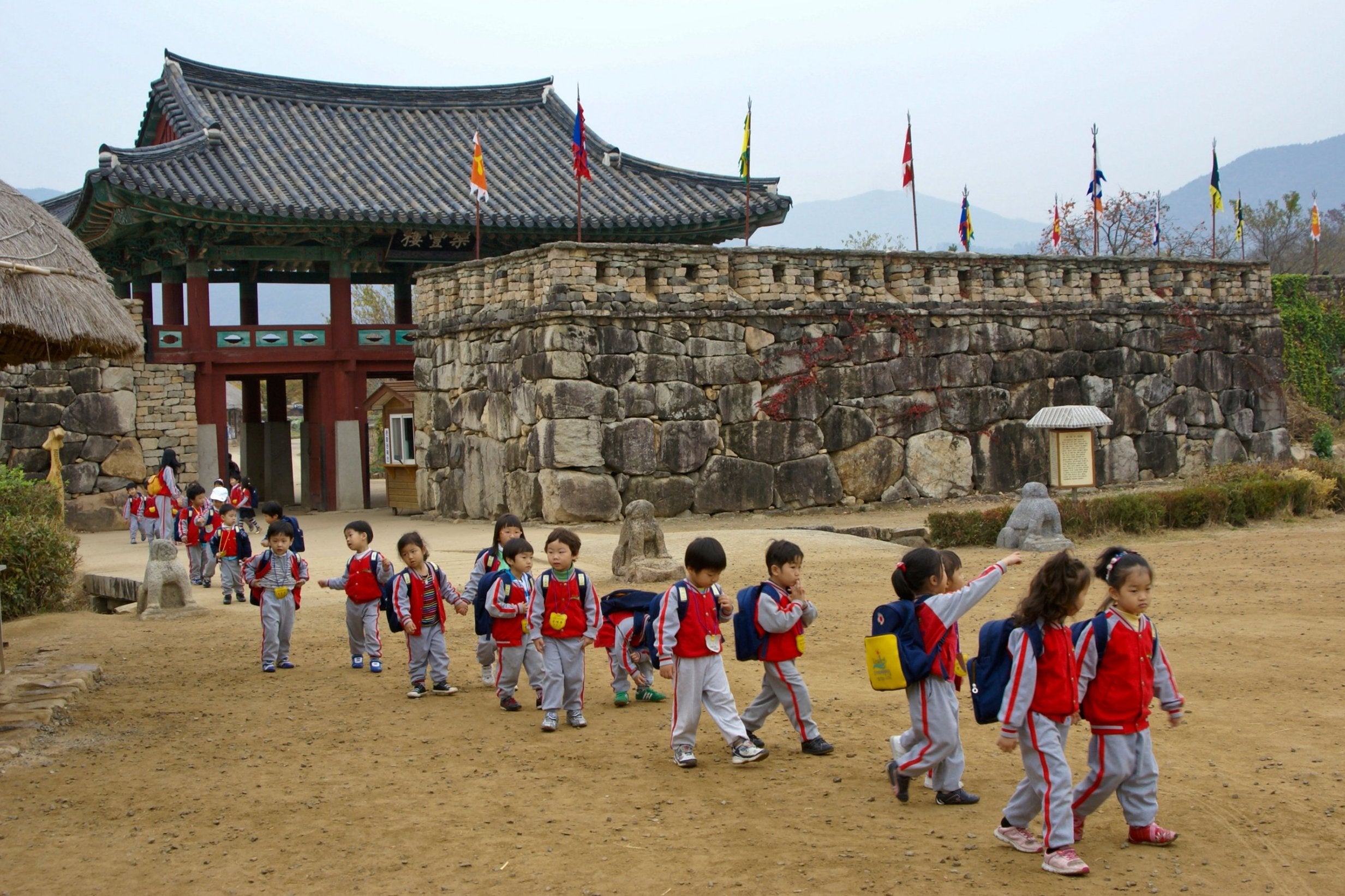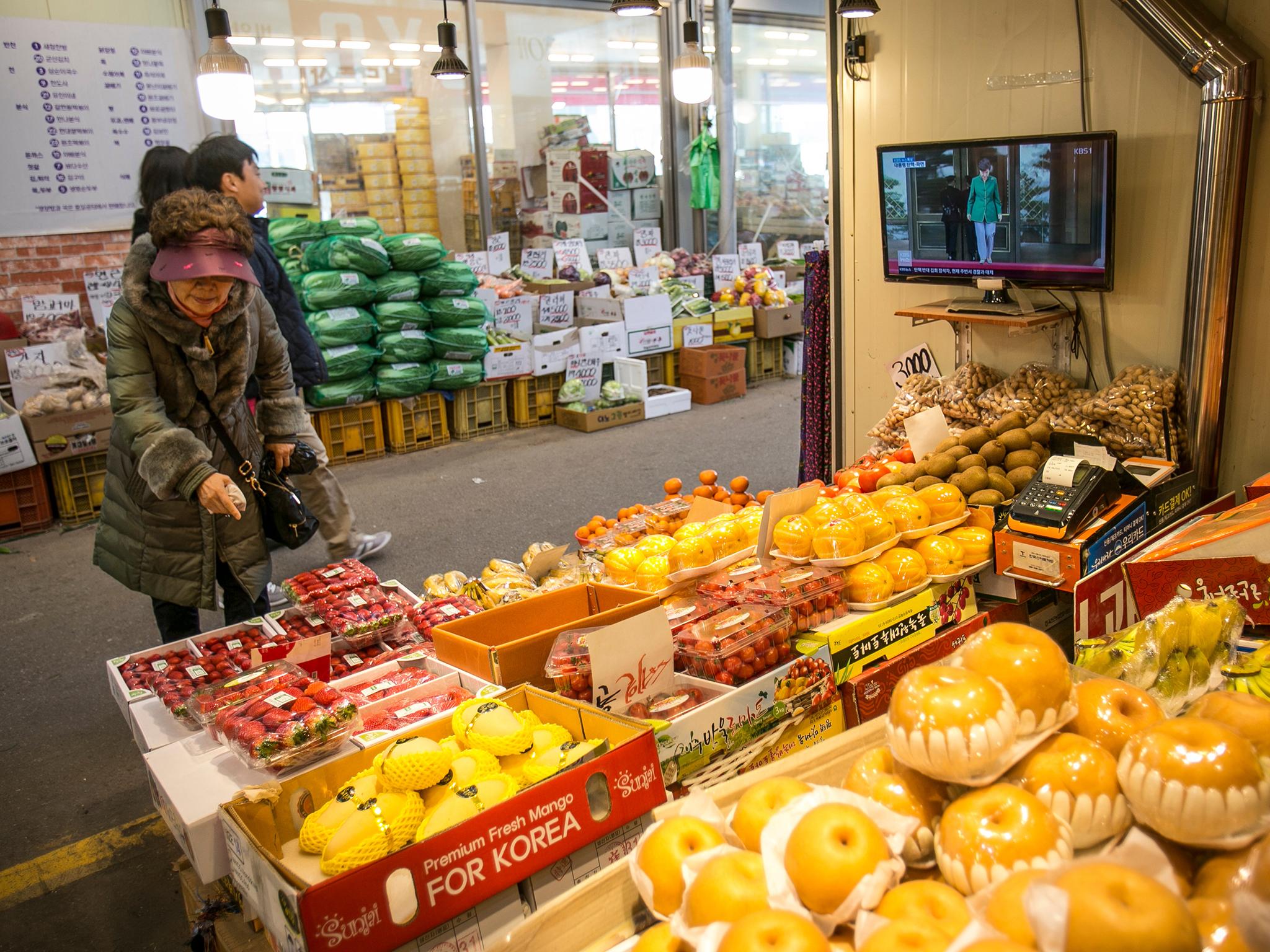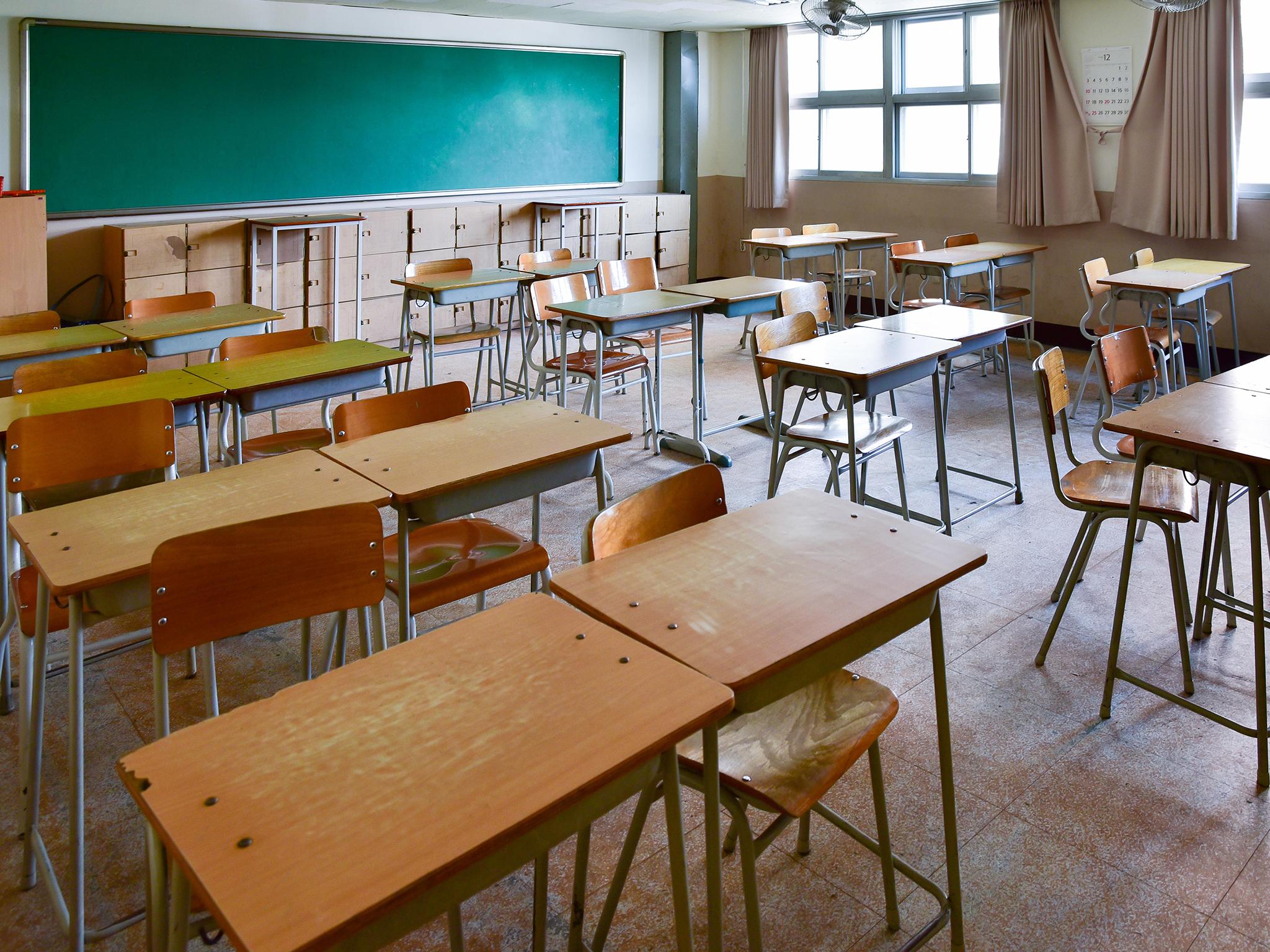Why a rural school in South Korea is filling its classrooms with grandmothers
Fearing for its future, Daegu Elementary has come up with a novel way of preserving its 96-year history, writes Choe Sang-Hun

Your support helps us to tell the story
From reproductive rights to climate change to Big Tech, The Independent is on the ground when the story is developing. Whether it's investigating the financials of Elon Musk's pro-Trump PAC or producing our latest documentary, 'The A Word', which shines a light on the American women fighting for reproductive rights, we know how important it is to parse out the facts from the messaging.
At such a critical moment in US history, we need reporters on the ground. Your donation allows us to keep sending journalists to speak to both sides of the story.
The Independent is trusted by Americans across the entire political spectrum. And unlike many other quality news outlets, we choose not to lock Americans out of our reporting and analysis with paywalls. We believe quality journalism should be available to everyone, paid for by those who can afford it.
Your support makes all the difference.Every morning on her way to school, Hwang Wol-geum, a first-year student, rides the same yellow bus as three of her family members: one is in nursery, another in year 3, and the other in year 5.
Hwang is 70 – and her schoolmates are her grandchildren.
Illiterate all her life, she remembers hiding behind a tree and weeping as she saw her friends trot off to school six decades ago. While other village children learned to read and write, she stayed home, tending pigs, collecting firewood and looking after younger siblings. She later raised six children of her own, sending all of them to high school or college.
Yet it always pained her that she couldn’t do what other mothers did.
“Writing letters to my children, that’s what I dreamed of the most,” Hwang says.
Help came unexpectedly this year from the local school that was running out of school-age children and was desperate to fill its classrooms.
South Korea’s birthrate has been plummeting in recent decades, falling to less than one child per woman last year, one of the lowest in the world.
The hardest hit areas are rural counties, where babies have become an increasingly rare sight as young couples migrated en masse to big cities for better paying jobs.
Like other rural schools, Daegu Elementary in Hwang’s district has seen its students dwindle. When Hwang’s youngest son, Chae Kyong-deok, 42, attended it in the 1980s, it had 90 students in each year. Now, the school has only 22 students in total.
This year, the worst calamity of all struck the district.
“We went around villages looking for just one precious kid to enrol in the first year,” says headteacher Lee Ju-young. “There was none.”
So Lee and local residents, desperate to save the 96-year-old school, came up with an idea: how about enrolling older villagers who wanted to learn to read and write?
Hwang and seven other women, aged 56 to 80, stepped forward, with at least four others asking to be enrolled next year.
For younger people who want to stay in the area, the future of their town depended on keeping the school alive.
“Who would start a family here if there were no school?” asked Noh Soon-ah, 40, whose husband – one of Hwang’s sons – quit his job in an auto-parts factory in a big city and resettled his family here five years ago to succeed his parents’ farming business. “Children are what brings laughter and vitality to a town.”

The local education office warmed to the idea, and Hwang started attending classes last month.
Like many on their first day, Hwang cried. But these were tears of joy.
“I couldn’t believe this was actually happening to me,” she says. “Carrying a school bag has always been my dream.”
In the first-year classroom, Hwang and two other grandmothers toil laboriously, determined to learn to read and write.
Pencil in hand, they chant the 14 consonants and 10 vowels of the Korean alphabet as their teacher, Jo Yoon-jeong, 24, writes them one by one on the white board. They take dictation on words like “aunt”, “fisherman” and “raccoon” with their slow and crooked penmanship.
Between writing exercises, Jo turns on an upbeat song, “There Is Nothing Wrong With My Age!”, and leads a dance routine for the giggling grandmothers to follow.
“School is so much fun,” Hwang says.

Decades ago, Korean families often focused what little resources they had on educating their sons. Many girls were expected to stay home and look after younger siblings while their parents worked outside.
Hwang says her father found a new wife after her mother gave birth to five daughters but no son. Her stepmother refused to send Hwang to school and scoffed at the idea of “teaching a daughter letters” when her father tried to show her how to read at home.
Being illiterate brought many humiliations later in life. Posting packages was always a problem because she could not write addresses.
Years ago, she and her husband, Chae Jan-ho, 72, were visiting their son in Seoul when they got separated in the bustling subway. Hwang could not read any of the signs and was hopelessly lost until a stranger helped her find her way.
Now she and her fellow students are determined to make up for lost time. One of the women who returned to school this year had dropped out of year 5 in the 1970s, when she was sent away to become a live-in housemaid for a rich family in order to support her own.
“They are eager to learn,” says Jo, the teacher, about her first-year students. “They are probably the only students here asking for more homework.”
Unlike other classrooms, this one has a sofa and a heated mattress. During breaks, the older women sit on the warm mattress and bury their feet under blankets. They also keep a basket of candies for the second year next door, who occasionally come to visit.
But Hwang feels bad that she is in school during a busy strawberry harvesting season. To make up for it, she rises at 4am and helps her husband, son and daughter-in-law pick strawberries before going to school.
Hwang has already hatched an ambitious plan.
“I am going to run for president of the village women’s society,” she says. “People used to ask me to run, but I always declined. It’s a job for someone who can read and write.”
© New York Times
Join our commenting forum
Join thought-provoking conversations, follow other Independent readers and see their replies
Comments